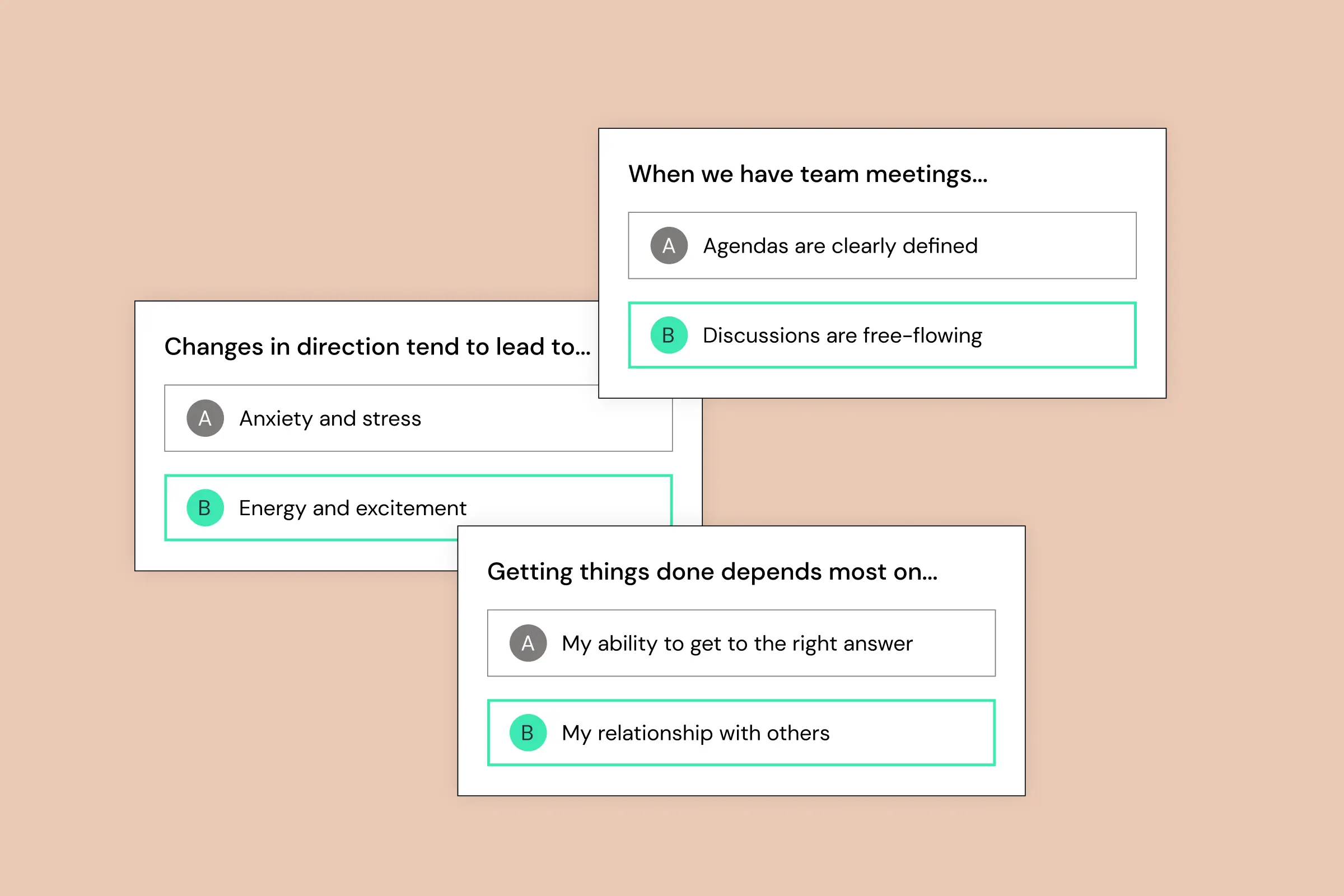TeamDynamics Solutions
The 4 TeamDynamics Dimensions
The 16 TeamDynamics Types
Free Trial
Use Cases
Blog
Resources
TeamVitals Assessment
Invite Another Team
Start Now
Dashboard
Login
Logout
For Teams
TeamDynamics Pro is for teams who want to improve how they
communicate and collaborate internally.
communicate and collaborate internally.
For Individuals
TeamDynamics Solo is for individuals who want to understand how they can better work with their teams.
For Organizations
TeamDynamics Enterprise is for organizations who want to understand their TeamDynamics within, and across, teams.
For Coaches and Consultants
TeamDynamics is a powerful addition to your professional coaching and consulting practice, whether you're working with individuals, small teams or Fortune 100 companies.
Free Team Building Resources
Explore all resources

Insights, Tips, and Team Building Tricks
Read more on our blog

.png)
Free TeamVitals check
How healthy is your team? Find out now and get your team’s health score in just 3 minutes — for free!








































